Gen Z Is Ditching College for Trade School: These Are the Highest Paying Blue Collar Jobs Right Now
College used to be the default next step after high school, but that narrative’s shifting fast. In order to avoid flattening wages and student debt climbing, they are considering trade schools and skilled apprenticeships as a way to save the day. These paths go straight to hands-on careers that actually pay well. Some of these roles hit six figures without a bachelor’s degree in sight.
Elevator Technicians
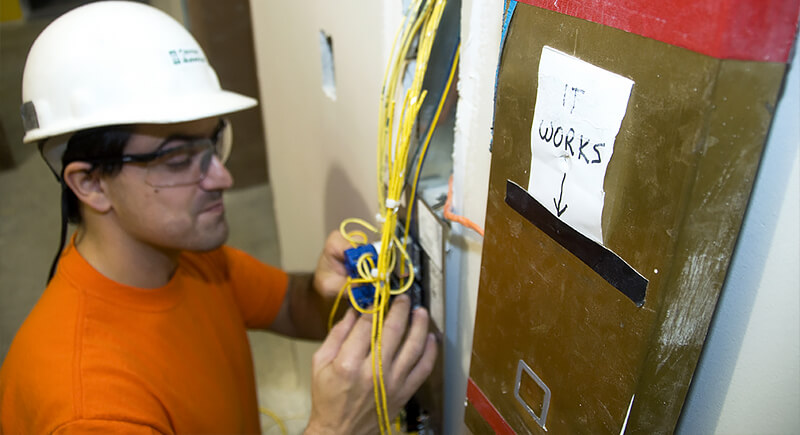
Credit: Wikimedia Commons
If you’ve ever felt trapped between floors, thank an elevator tech for getting things moving again. Their salaries often top $102K, and their job encompasses installing and maintaining elevators, escalators, and even those moving walkways at airports. Most complete a multi-year apprenticeship and are required to be licensed in many states.
Power Plant Operators
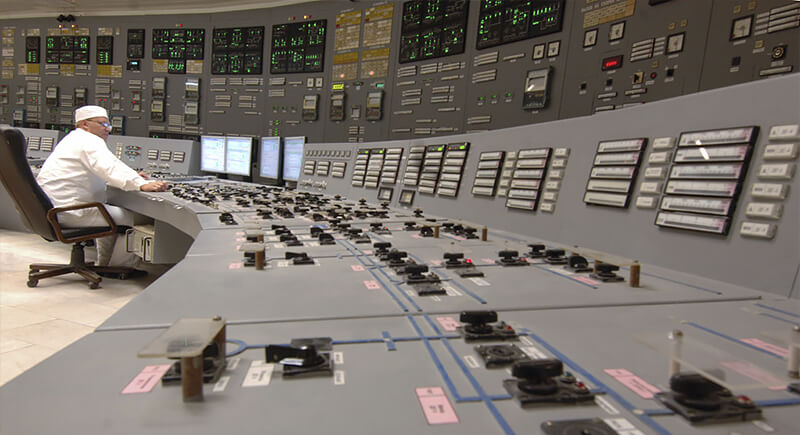
Credit: Wikimedia Commons
Power plant operators earn around $100,890 per year. They manage the systems that generate electricity, monitor gauges, maintain machinery, and ensure the safe operation of power generation facilities. Extensive on-the-job training is required, and those working in nuclear facilities must also pass federal licensing exams.
Electrical Power-Line Installers and Repairers
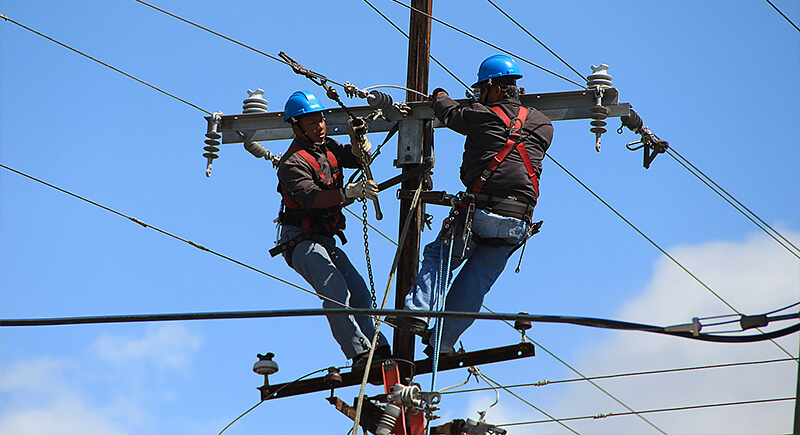
Credit: Wikimedia Commons
Here’s one way to get paid well for risking stormy skies. These lineworkers earn about $85,420 to maintain high-voltage cables, often balancing on poles or operating cherry pickers during harsh weather. It’s physically demanding and heavily reliant on apprenticeships that mix classroom lessons with plenty of outdoor grit.
Aircraft Mechanics and Technicians
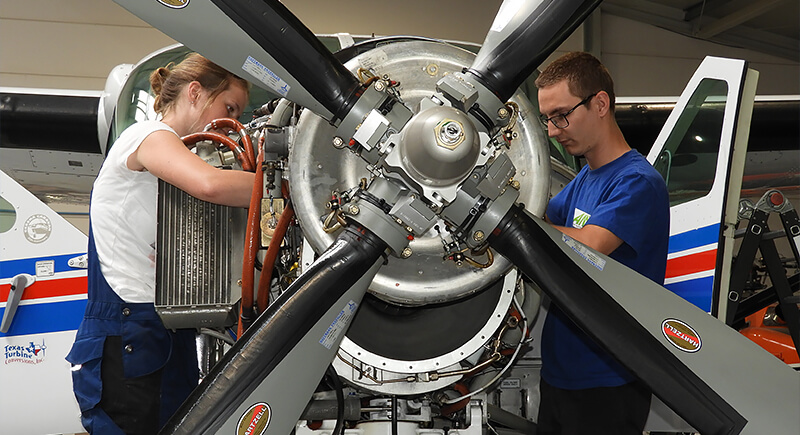
Credit: Wikimedia Commons
Aircraft mechanics earn a median of $75,400 a year. Their job is to keep planes in working order through inspections and repairs of engines, hydraulics, and electrical systems. Training usually comes through FAA-approved schools, and certification is required before entering a workforce of more than 160,000.
Railroad Workers
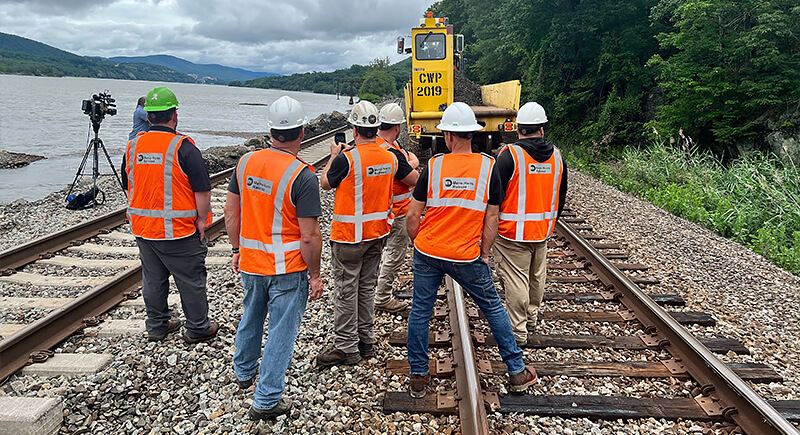
Credit: Wikimedia Commons
At around $73,580 annually, train conductors and engineers earn more than many graduates, without ever setting foot on a college campus. Gen Z’s interest here is in paid training, a lot of travel, and odd hours. But most new hires just need a high school diploma and several months of paid, hands-on training with their employer.
Boilermakers

Credit: Wikimedia Commons
Building massive boilers and pressure vessels doesn’t sound glamorous, but the $71,140 salary helps. These professionals often work in tight spaces or remote locations. Training usually happens through a four-year apprenticeship, mixing technical instruction with paid work.
Construction and Building Inspectors
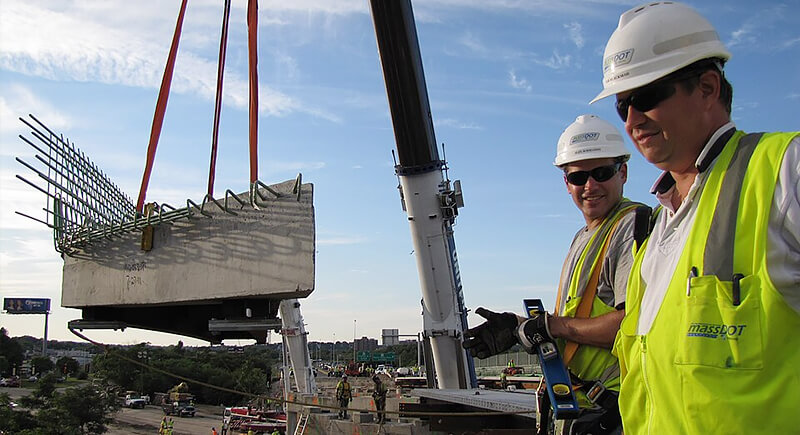
Credit: Wikimedia Commons
Inspectors are the checkpoint between a blueprint and a finished building. They review plans, walk sites, and test systems to confirm everything meets code. The median pay is about $67,700, and most inspectors arrive with years of trade experience before stepping into the role.
Stationary Engineers
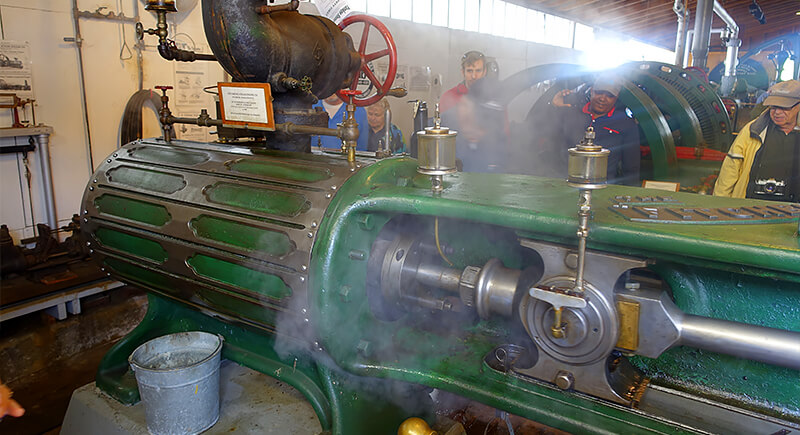
Credit: Wikimedia Commons
Operating the massive heating and cooling systems in office towers or hospitals pays about $67,640 a year. Gen Z workers entering these roles are looking for jobs that feel essential, pay well, and don’t require a bachelor’s degree to access.
Electrical and Electronics Repairers

Credit: pexels
For Gen Z not willing to do a public-facing job but still make good money, this is a good option. Electrical and electronics repairers earn about $67,220, and often work behind the scenes in industrial systems. It’s detailed work that aligns well with Gen Z’s tech-savvy strengths and preference for specialized skillsets over general degrees.
Gas Plant Operators
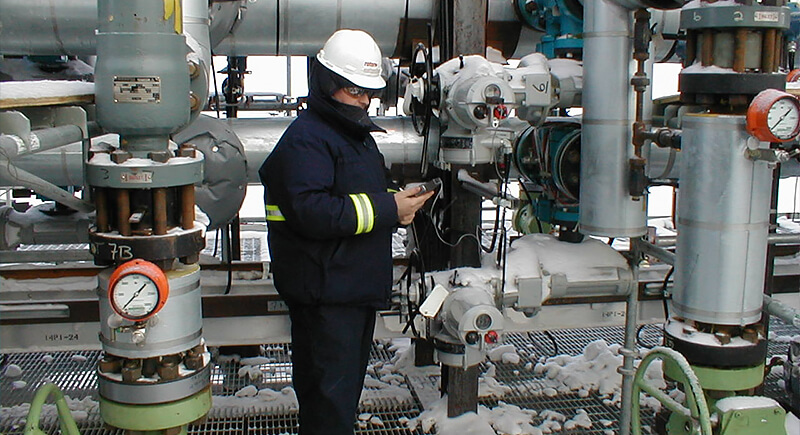
Credit: Wikimedia Commons
For Gen Zers who want to skip student loans and start earning quickly, gas plant operators offer a compelling track. With salaries around $74,880, most of the learning happens on the job without any college needed. It’s a career rooted in process control and safety, not paperwork or prestige. Most workers receive extensive training on the job, often over several years.
Plumbers

Credit: Wikimedia Commons
Pipes run through nearly every building, which keeps plumbers in steady demand. They install and repair water and gas lines, handle leaks, and set up fixtures from sinks to heaters. Median pay is about $63,350, and most workers learn through multi-year apprenticeships that end with state licensing exams.
Electricians

Credit: Wikimedia Commons
As smart homes and solar panels become the norm, electrical work has gotten more complex, and more lucrative. For Gen Z, it’s a future-forward job that keeps their hands moving and minds engaged. At $63,310 annually, electricians are building high-demand careers through apprenticeships, not tuition.
Ironworkers
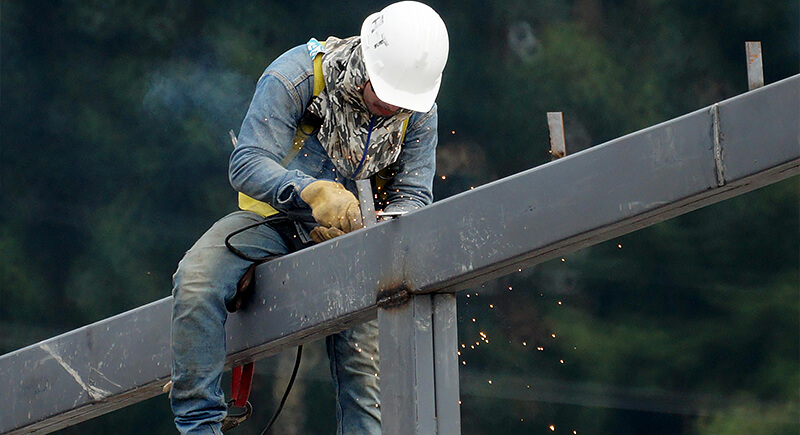
Credit: pexels
Ironworkers earn about $63,350 building the skeletons of skyscrapers, bridges, and stadiums. Most go through union apprenticeships, where they learn welding, rigging, and how to keep their footing hundreds of feet up. Gen Zs usually seek transparency and immediate payoff. There’s comfort in knowing exactly where your training leads.
Wind Turbine Technicians

Credit: Wikimedia Commons
Wind techs install and maintain the tall machines that turn wind into power. The median salary is about $61,770, and demand is rising fast — projected to grow 60% by 2033. Most enter through technical programs, followed by hands-on field training.
Aircraft and Avionics Equipment Technicians

Credit: iStockphoto
Some Gen Z workers are drawn to aviation not for flying, but for the electronics that keep planes aloft. These technicians make about $75,400, and while the job requires FAA-certified training, it avoids the four-year wait. It’s technical and doesn’t involve student debt.